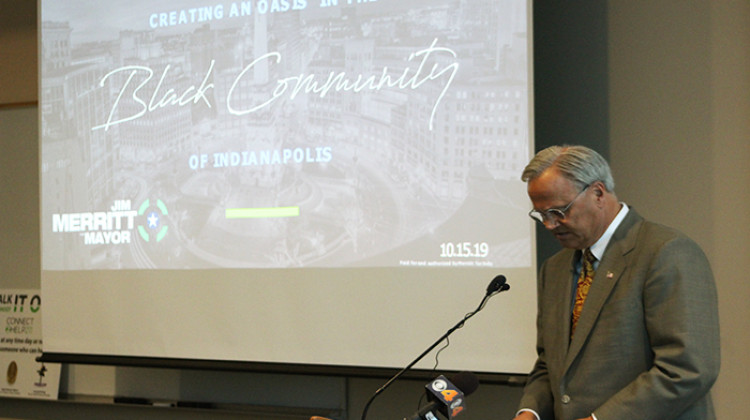
State Sen. Jim Merritt presents his policy proposals to concerned African American clergy and community members.
Erica Irish/WFYIRepublican State Sen. Jim Merritt said Tuesday if he becomes mayor of Indianapolis, he will appoint a deputy mayor of education to promote quality schools, invest in minority-owned businesses and create more affordable housing to drive down racial inequalities.
Merritt gave this answer to concerned African American clergy who want him and Indianapolis Mayor Joe Hogsett to answer how they’ll solve the education, public safety and economic deserts disproportionately affecting black communities.
He says the relationships he creates as mayor will be central to policy changes.
“We will be there,” Merritt said at a downtown press conference. “We will be in the grassroots working in the community and understanding the relationships, helping with conflict resolution.”
Merritt unveiled an agenda outlining the conversations he hopes will drive these interactions. It spans three areas identified by the Concerned Clergy of Indianapolis and the Baptist Minister’s Alliance as receiving the least resources and support in local black communities.
To address inconsistencies in education, Merritt said he will recreate a spot for a deputy mayor of education — the Hogsett administration doesn’t have one — and provide more oversight and support for the Office of Education Innovation, which manages mayor-sponsored charter schools. He also wants to ensure local school boards are staffed by community members.
In an effort to improve public safety for black residents, Merritt said he will create an Indianapolis Commission on the Social Status of African American Males to oversee cultural competency programs for law enforcement and a Use of Force Board to review police brutality incidents.
But Merritt continues to face criticism for his proposed swarm technique, a plan to increase police patrols in high-crime areas to respond to violence. Some community members at the conference said the proposal promotes “stop and frisk” practices.
Merritt argues he “never said those words” and emphasized throughout the conference why additional police officers are central to identifying and stopping neighborhood violence.
“It’s overwhelming that if you’re murdered in Marion County, more than likely, you’re an African American,” Merritt said. “This has to stop,” he urged the crowd.
Outside of public safety, Merritt’s proposal calls for his administration to work with nonprofits, federal and state governments to offer grants and loans ranging from $1,000 to $50,000 to business leaders. It also establishes a fund for minority-led startups to be supported by fees collected from those who abuse incentives for minority- and women-owned businesses.
Pastor Wayne Moore of Indianapolis says Merritt and Hogsett still must prove they can bridge divides in more specific ways, such as by providing larger loans and capital investments to minority-owned businesses and encouraging economic development in the neighborhoods around downtown.
“There’s not much you can do in this community with a small business loan. I think you need to readdress that,” Moore said to Merritt. “It sounds like you’re trying to give us the shell and not the peanut.”
Hogsett will outline his solutions at noon on Oct. 21. The event will again be held at the Indianapolis Public Library’s Central Library.
 DONATE
DONATE




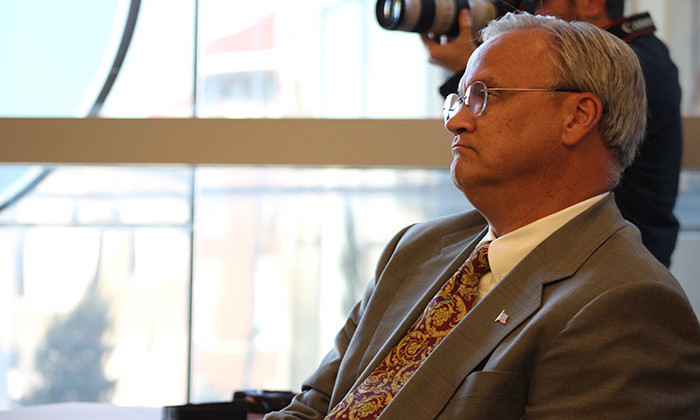
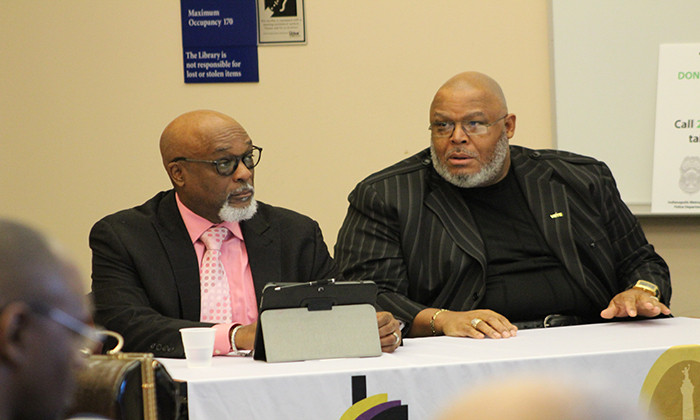

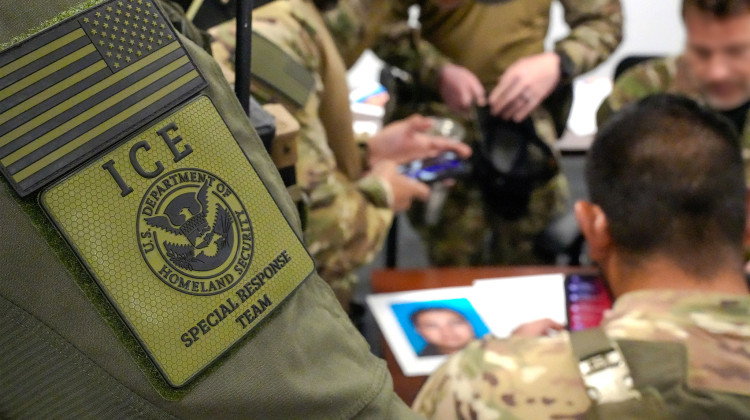
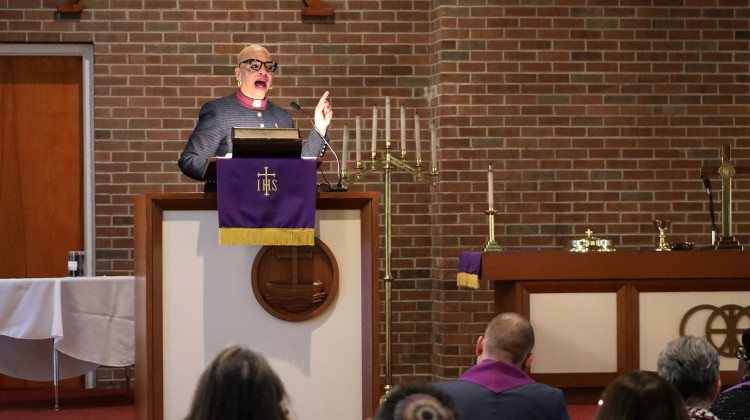


 Support WFYI. We can't do it without you.
Support WFYI. We can't do it without you.